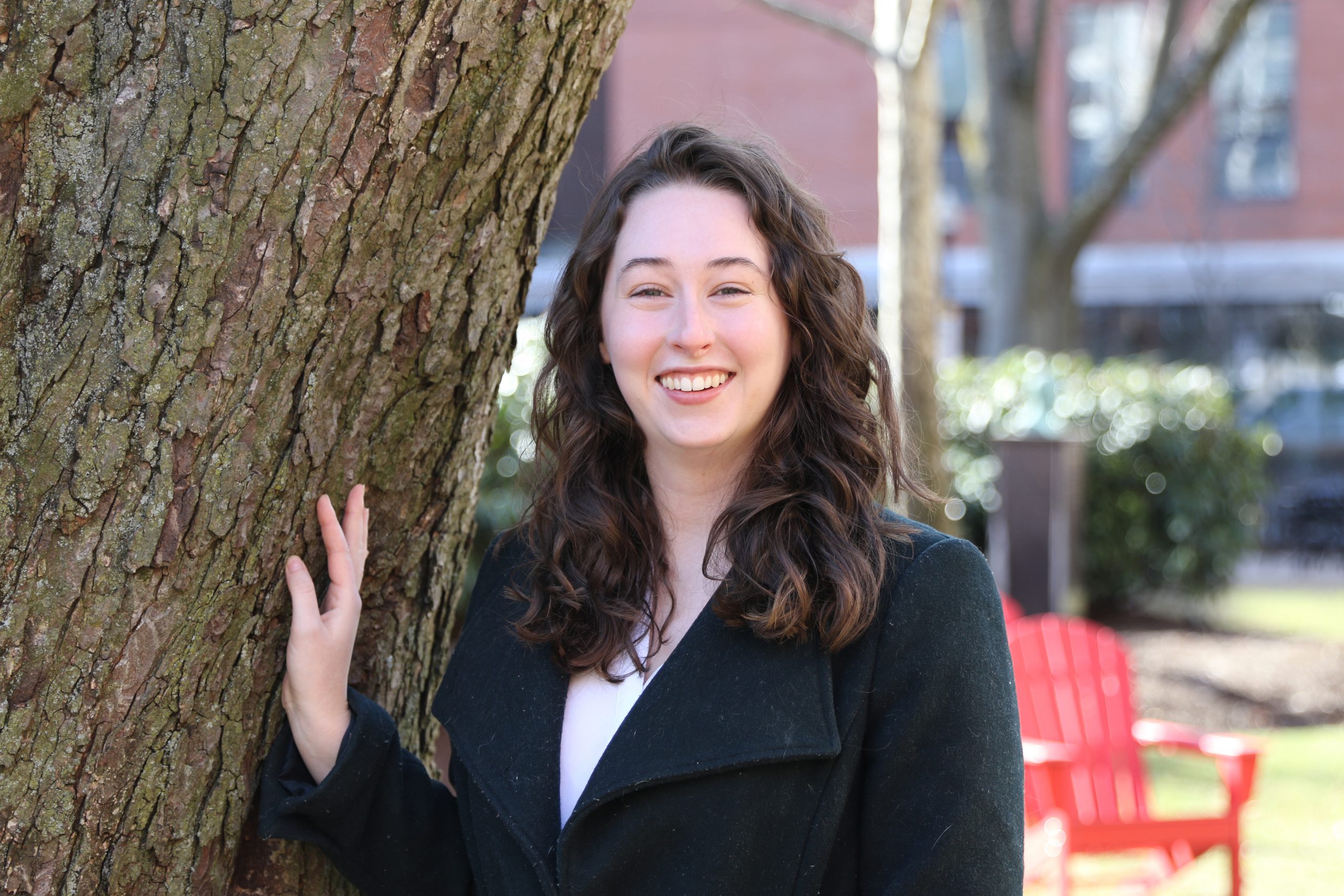Changing Lives on a Broad Scale: Student Practicum Becomes Full-Time Job in Climate Science.

‘Changing Lives on a Broad Scale’
MPH student Lilly Nichols turns climate-change practicum into a job helping researchers study extreme heat.
As she returned to campus in September for the second year of her MPH studies, Lilly Nichols had very few expectations when she started a practicum with the Adrienne Arsht-Rockefeller Foundation Resilience Center.
But this week, just five months after beginning her practicum as a student researcher, Nichols will start as a full-time project assistant at the resilience center, where she will continue working on a series of programs to quantify the effects of extreme heat on individuals and communities.
“I was expecting it to be a short-term internship, which is how I think it traditionally is, but then it kind of flourished into a full-time job and an exciting career path, and a good opportunity for the center to connect with SPH in a meaningful, long-term way. It was exciting to be part of that collaboration as it happened,” Nichols says. “I think it was more than I could have hoped for.”
Arsht-Rock, as it is known less formally, has set an ambitious goal to provide climate resilience solutions to one billion people across the world by 2030 and recently partnered with the SPH Center for Climate and Health on several sponsored research programs. Arsht-Rock launched in 2019 to address “the widespread and intensifying consequences” of global climate change, an objective that dovetails with those of the SPH climate center.
“We’ve been doing a lot of program monitoring and evaluation for a project in Seville, Spain,” Nichols says, excitedly describing how she helped SPH researchers evaluate a pilot program to categorize the severity of forecasted heat waves. As heat waves reach a certain threshold, they may be named the same way as hurricanes to help reinforce the public perception of extreme heat as high-risk events associated with poor health outcomes.
“Lilly’s success also highlights how students can be central to the Think and Do parts of the School’s mission,” says Gregory Wellenius, director of the SPH Center for Climate and Health. “It’s a privilege to work with the Arsht-Rock Resilience Center and support their mission to reduce the number of lives lost to extreme heat. Lilly has been an incredible asset to the team. This is a great example of how MPH practica can be win-win: a wonderful experience for our students and of tremendous benefit to our community partners,” Wellenius said.
For Nichols, the practicum offered a chance to translate many of the skills learned in the classroom to a practice-based work environment. “I’ve always just sort of been interested in working with people, but I also very much enjoy science and policy. Public health touches all of those areas, and provides a great opportunity for changing people’s lives on a broad scale,” Nichols says. “And I think public health is unique in that it tries hard to be proactive instead of just reactive. I just find that to be very important.”
As she continued working with Arsht-Rock over the fall, she was able to branch into other projects and helped co-author a manuscript on the effects of extreme heat on pregnancy. That article is currently under review ahead of an anticipated spring publishing date.
The Arsht-Rock Center is one of 16 programs administered by the Atlantic Council, an international-affairs think tank that has begun to consider climate change as a worldwide concern for global security and economic prosperity. The Arsht-Rock collaboration sprang out of an emerging relationship between the center and idea hub, SPH’s in-house innovation incubator.
“This project is a perfect example of what we’re trying to achieve with idea hub—facilitating mutually beneficial partnerships that create opportunities for the work of our faculty to extend beyond traditional academic boundaries,” says Vanessa Boland Edouard, idea hub director.
Nichols says SPH’s focus on climate and health as one of the school’s strategic priorities was a definite draw when she was exploring graduate schools. She is a 2019 graduate of Davidson College, where she studied political science and global health.
“Research is important, but it’s also important that that research is informing programs and policies that are moving and getting things done,” Nichols says. “[BUSPH] is one of the few programs with a major climate focus at all. In my previous public health learning, climate had been this sort of side issue that people don’t really dive into. BU is one of the only places with faculty, research, courses, and attention devoted toward the impact of climate on public health.”
Nichols says her practicum enabled her to immediately apply what she had learned in class directly into practice at Arsht-Rock, where she worked with researchers collecting data that could inform and influence effective policies.
“My sense is we’re at the beginning of governments and the larger public health community looking at climate as not just an issue but possibly THE issue,” Nichols says. “I’m just excited to work wherever it’s necessary, whether that’s extreme heat, emergency preparedness planning, long-term adaptation, or resilience strategies—all of that’s interesting to me.”